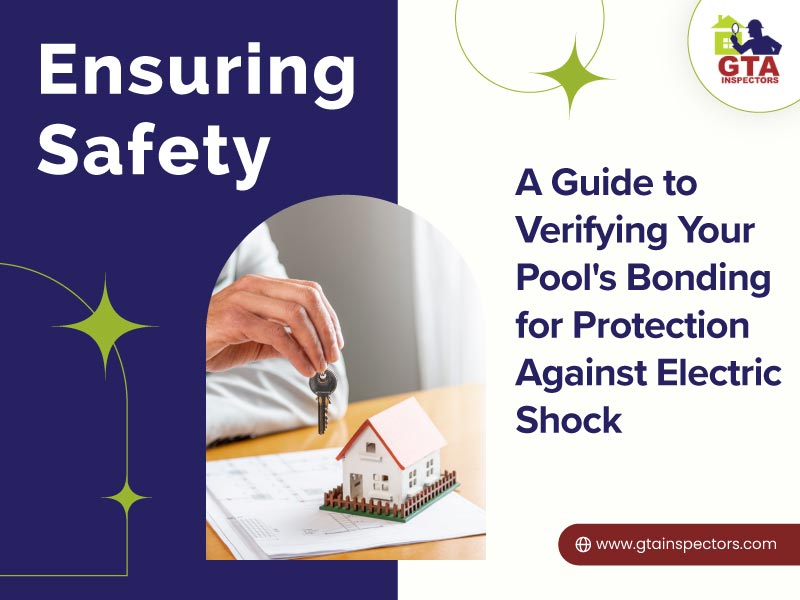ENSURING SAFETY: A Guide to Verifying Your Pool's Bonding for Protection Against Electric Shock2/16/2024 As we approach the warmer months, thoughts of poolside relaxation and family fun begin to fill our minds. While a swimming pool can be a source of joy and entertainment, it's crucial to prioritize safety, especially concerning electrical hazards. Electric shock incidents around pools can have devastating consequences, but with proper precautions and regular maintenance, these risks can be significantly minimized.
Understanding Pool Bonding: Before diving into the verification process, let's understand what pool bonding entails. Pool bonding involves connecting all metal components within and around the pool area to ensure they are at the same electrical potential. This helps to prevent electrical shocks in the event of a fault in the pool's electrical system. 1. Regular Inspections: Regular Certified property inspection of your pool's bonding system are crucial for ensuring its effectiveness. Inspect all metal components for signs of corrosion, damage, or loose connections. Pay close attention to areas where metal components meet, as these junctions are prone to corrosion and can weaken the bonding connection. 2. Testing the Bonding System: Testing the bonding system is a critical step in verifying its effectiveness. Use a pool bonding tester, also known as a "megger," to measure the resistance between various metal components and the pool's bonding grid. Ideally, the resistance should be very low, typically less than one ohm. Higher resistance indicates poor bonding and may require further investigation and repairs. 3. Proper Installation: Ensure that all metal components are correctly installed and connected to the bonding grid according to manufacturer specifications and local building codes. Improper installation can compromise the effectiveness of the bonding system and increase the risk of electric shock incidents. 4. Address Issues Promptly: If you encounter any issues during the residential property inspection or testing process, address them promptly. Repair or replace damaged or corroded metal components, tighten loose connections, and verify that all components are correctly bonded. Ignoring problems with the bonding system can pose significant safety risks to pool users. 5. Seek Professional Assistance: If you're unsure about how to verify your pool's bonding system or encounter complex issues during the inspection process, don't hesitate to seek professional assistance. Certified electricians or pool maintenance professionals can provide expert guidance and ensure that your pool's bonding system meets safety standards. 6. Educate Pool Users: Finally, it's essential to educate pool users about electrical safety practices. Remind them never to swim during thunderstorms, avoid using electrical appliances near the pool, and immediately report any signs of electrical malfunction or shock. In conclusion, ensuring the safety of your pool's bonding system is crucial for protecting against electric shock incidents. By understanding the basics of pool bonding, conducting property snagging inspections , testing the bonding system, addressing issues promptly, seeking professional assistance if necessary, and educating pool users about electrical safety, you can create a safer swimming environment for yourself, your family, and your guests. Prioritizing safety will allow everyone to enjoy the pool with peace of mind and reduce the risk of accidents and injuries.
0 Comments
Leave a Reply. |
AuthorWrite something about yourself. No need to be fancy, just an overview. Archives
July 2024
Categories
All
|


 RSS Feed
RSS Feed
